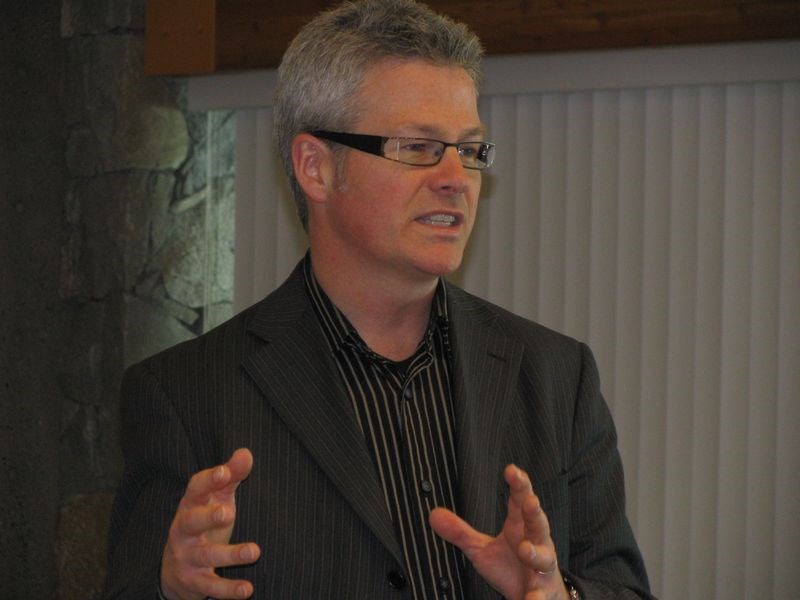Intelligence isn't all about getting good grades and winning game shows.
Just ask emotional intelligence coach David Cory and the 20 or so people who attended his two-day workshop last week at the University of Northern British Columbia.
No, it didn't improve anyone's math skills or help them build better rockets, but if it all worked out, they've headed back to their workplaces and homes with some enhanced people skills.
Cory, president and founder of the Vancouver-based The Emotional Intelligence Training Company Inc. (EITC) explained the concept in a surprisingly-scientific way.
"Our brains have processing power other than processing cognitive information," he said in an interview during a break. "There's this emotional piece."
Emotional intelligence, or EI, was popularized in the mid-1990s by psychologist Daniel Goleman in a book of the same name that spent more than one-and-a-half years on the New York Times best seller list.
Cory, who holds a masters degree in adult education, was teaching leadership with the Open Learning Agency when he came across the book and was so taken with the concept "I decided I was going to focus my career on that."
Emotional intelligence has fallen a bit out of favour since then, and is often seen as something of a fad or a trend.
"But it's as much a fad or a trend as much as people skills are a fad or a trend," Cory said.
If anything, "emotional intelligence is the foundation on which people skills are built on top of," Cory asserted.
There is such a thing as an emotional intelligence quotient but Cory stressed it's not used to uncover "emotional geniuses." Rather, it is a diagnostic tool to measure strengths and weaknesses across 15 "competencies" like emotional self-awareness, self-actualization, problem solving and stress tolerance.
"If bright people struggle, it's in those areas, and we know that all of those areas are related to emotions," Cory said. "They don't necessarily know or understand what they value or how to prioritize and see where they want to put their focus."
Most of those in the workshop were in managerial and human resource positions seeking to improve their leadership skills. Larry Leischner, a human relations consultant, characterized development of emotional intelligence as nothing short of essential.
"If you look at the people that are asked to leave an organization, it's almost never because they can't do the job technically," Leischner said. "It's because their ability to function in relationships is lousy. Unless you have a critical mass of emotionally intelligent people in your workplace, your workplace is going to be chaotic."
He also believes the approach should be introduced into the education system as early as kindergarten age, "so that it becomes inherent from day one and down the line."
The benefit would be "fewer guys whacking their girlfriends, less bullying, all of that stuff. But in workplaces it needs to be a core course for every single employee."



